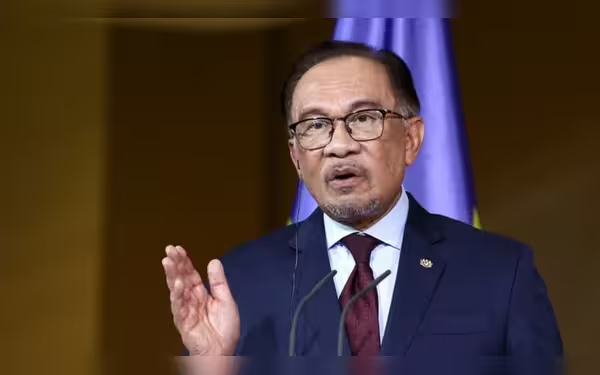Saturday, November 16, 2024 05:34 PM
Malaysia's Energy Surplus Fuels Development and Export Growth
- Malaysia generates energy surplus for development projects.
- Johor SEZ aims to enhance investment and trade.
- Renewable energy initiatives support economic growth.
 Image Credits: channelnewsasia
Image Credits: channelnewsasiaMalaysia's Prime Minister announces energy surplus to support development projects and boost exports, focusing on sustainability and economic growth.
Malaysia is making significant strides in its energy sector, with Prime Minister Anwar Ibrahim announcing that the country is generating enough energy surplus to support major development projects and boost exports. This announcement comes as Malaysia seeks to attract investors to a special economic zone (SEZ) that is being planned in collaboration with neighboring Singapore. The SEZ, located in Malaysia's southern Johor state, aims to facilitate investment and enhance the movement of goods and people between the two countries.
During a recent investment event in Johor, Anwar emphasized the government's commitment to renewable energy and energy transition initiatives. He stated, "Taken together with various energy-focused projects in all states and regions of Malaysia, we are confident of a surplus of energy that feeds developments such as the JS-SEZ, as well as have enough to grow our exports of energy." This focus on sustainability is crucial as Malaysia aims to achieve net-zero emissions by 2050 while still pursuing ambitious projects like the Johor-Singapore SEZ.
Johor is poised for a surge in energy demand, particularly due to the influx of large investments in data center facilities from major tech companies, including Nvidia and China's ByteDance. These investments have not only contributed to the local economy but have also helped Malaysia's overall economic performance. Anwar noted that the country's economy has exceeded expectations in the past two quarters, with the local stock market emerging as the best-performing in the region.
Looking ahead, the third quarter of this year is also showing promising signs for economic growth. The combination of energy surplus and strategic investments positions Malaysia as a competitive player in the global market. As the country continues to develop its energy resources and infrastructure, it is likely to attract even more foreign investment, further enhancing its economic landscape.
Malaysia's proactive approach to energy generation and development projects not only supports its domestic economy but also strengthens its position as a key player in the Southeast Asian region. As the nation moves forward with its plans, the focus on sustainability and innovation will be vital in ensuring long-term growth and prosperity.













